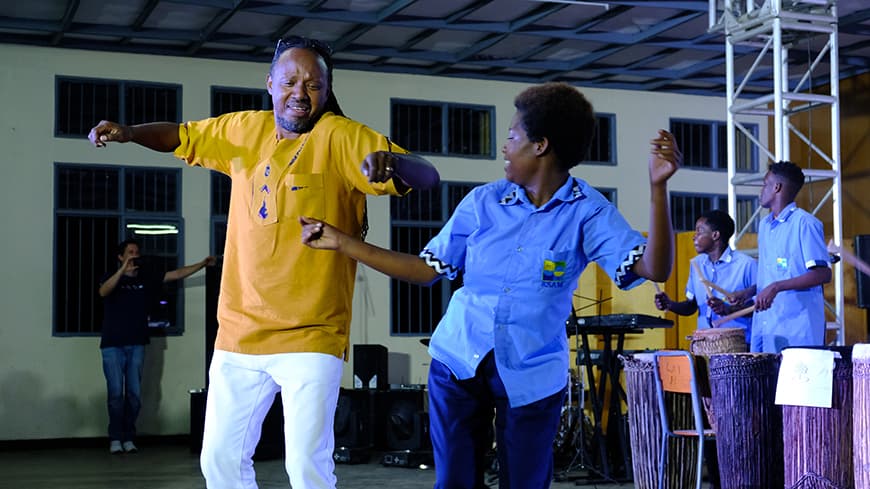Live internet streaming has made it easier than ever before to access and enjoy concerts from anywhere in the world with the click of a button.
But for the artists, it's no easy task.
The time delay that occurs during a live internet performance — known as latency — can make singing and playing in time with other performers confusing and difficult.
When latency exceeds around 30 milliseconds musicians fall out of time when playing with each other.
Edith Cowan University (ECU) PhD candidate Matt Bray's research at the Western Australian Academy of Performing Arts (WAAPA) is aiming to solve this problem for musicians.
To do so, he has developed 'Telemidi': a networking process that coordinates musical performance data (MIDI data) over the internet and reduces latency, enabling musicians to perform together in unison, in real-time.
 Matt Bray demonstrates how Telemidi works.
Matt Bray demonstrates how Telemidi works.
Testing the theory in two far-away places
To put Telemidi to the test, Matt recently staged a streamed performance involving musicians from two places as far away as you can imagine: Rwanda and Canada.
The pinnacle of the event was a performance of Humura Rwanda, an interpretation of traditional Rwandan folk song, arranged for Pipe Organ by renowned Canadian composer Denis Bedard.
It featured a primary pipe organist in Vancouver (Michael Dirk), a keyboard player (Noël Benimphuhwe Louis) accompanied by a 100-student choir in Rwanda (led by award-winning musician Jacques “Popo” Murigande), and another pipe organ in Calgary.
Watch the performance of Humura Rwanda.
Experiment strikes the right note
Matt explained that the distance the data travelled across the internet from Africa to Vancouver and Calgary in Canada was approximately 17,404km, with a one-way travel time of approximately 290 – 350 milliseconds.
"Along with the Telemidi technology, we needed to slightly alter the performance process so that everyone was in sync," Matt said.
"The keyboardist played his chords one beat ahead of the score so the data would travel to Canada on time."
"And the result is highly musical."
 Jacques "Popo" Murigande dances with a student from the School of Arts and Music choir after the performance.
Jacques "Popo" Murigande dances with a student from the School of Arts and Music choir after the performance.
Matt said the findings from his study had benefits for both musicians and audiences.
"I have managed to overcome approximately 80 per cent of latency issues in my research, which means people from anywhere on the planet can collaborate and create music together," he said.
"And the listening audience can consist of millions or more for any given performance."
Read more about Matt's research and watch videos of the performances.

 Matt Bray's research is investigating how to reduce latency in internet performance enabling musicians from anywhere in the world to perform together in real-time.
Matt Bray's research is investigating how to reduce latency in internet performance enabling musicians from anywhere in the world to perform together in real-time.


